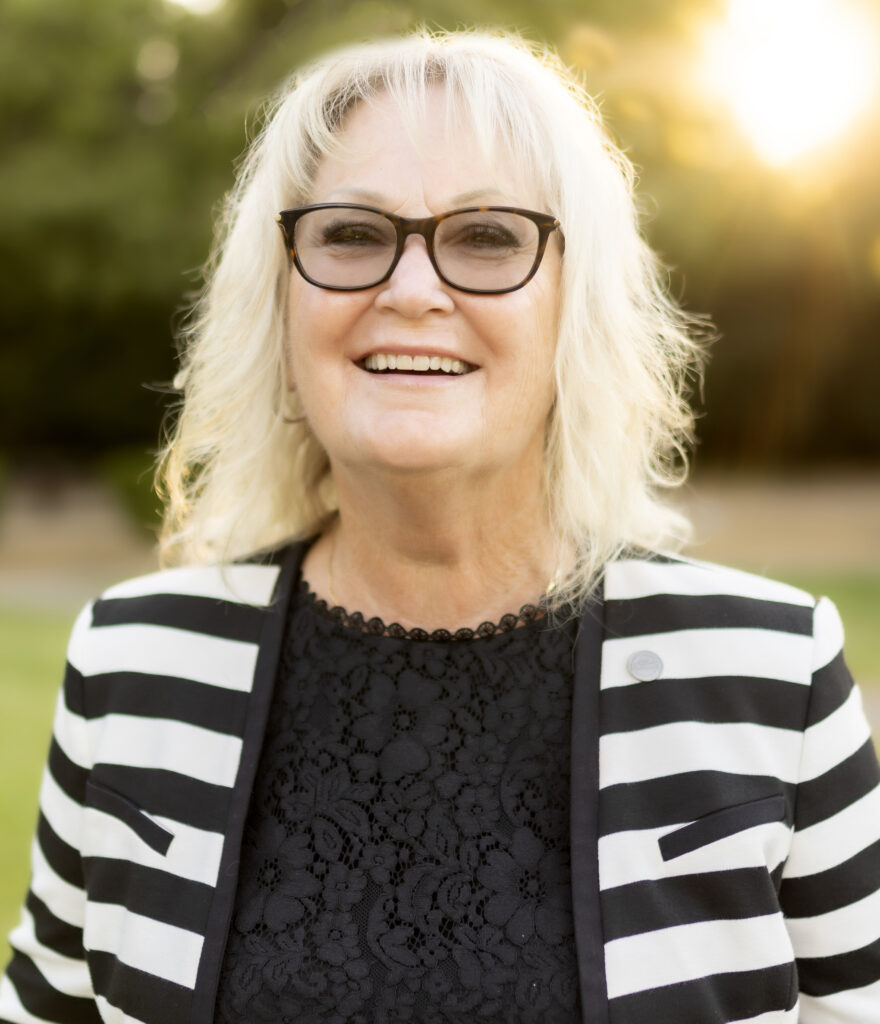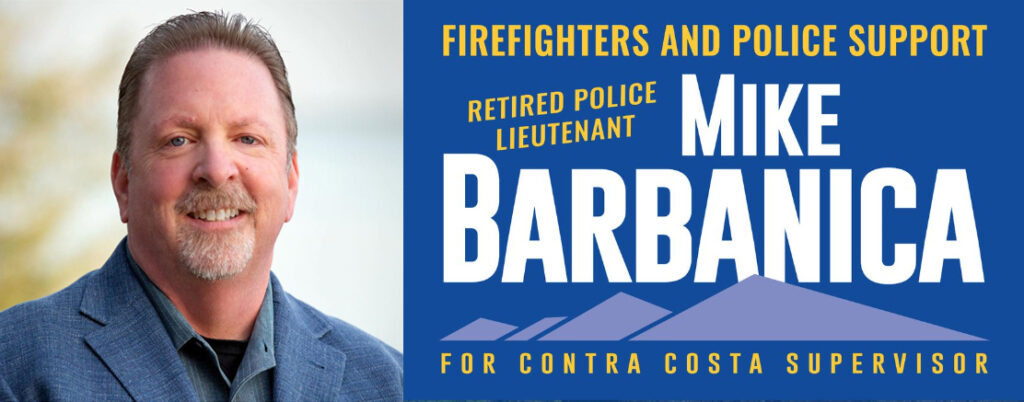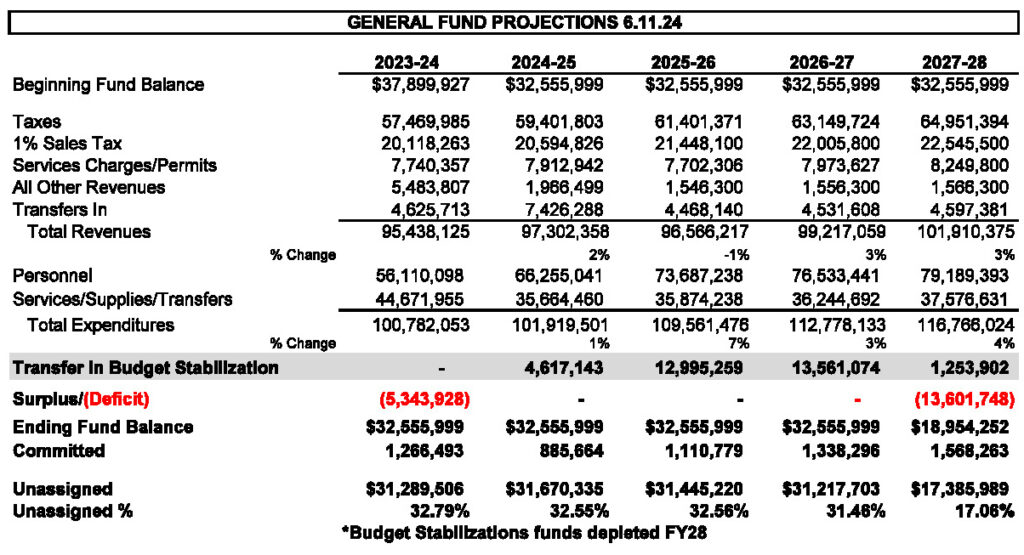Payton Perspective: Bergerhouse for Antioch School Board Area 3 Trustee, Cobos-Smith in Area 4
Sunday, November 3rd, 2024
By Allen D. Payton
With his years of experience in multiple positions in the Antioch Unified School District, as well as a graduate of its schools, himself, endorsing Scott Bergerhouse for Area 3 Board Trustee was another easy decision this election season. In Area 4, while I don’t know her and never heard of her until this year, I’m willing to give newcomer Olga Cobos-Smith the opportunity to serve and help lead the district offering her experience on the board to help the district’s students.
Bergerhouse for Area 3 Trustee
As the only candidate of the four running in the two competitive races for school board, this year, to reach out to the Herald and provide an announcement about his campaign, Bergerhouse’s slogan of “Putting Students First” pretty much sums up his career in education. He has worked with thousands of students and their families over the years as a teacher, a school principal and most recently, a district administrator. He’s running for the open seat in Area 3 being vacated by Dr. Clyde Lewis who chose not to run for re-election after just one, tumultuous term on the Board.
As previously reported, Bergerhouse began his career with AUSD as an English teacher in 1984 at what was then Park Junior High School. He then worked as an administrator at Antioch High School, Antioch Middle School, Park Middle School, Deer Valley High School and then, Carmen Dragon Elementary. In 2010, he was named High School Principal of the year by the Association of California School Administrators. For seven years, Bergerhouse was selected by administrators in the district to serve as president of the Antioch Management Association.
He also served as the second principal of Dozier-Libbey and in 2019 he was hired to be the Director of Student Support Services in the school district’s offices from which he later retired.
Bergerhouse says he, “will advocate for programs that support not only academic success but also the overall well-being of our students; will also work to enhance safety for both students and staff;” he “will focus on increasing student attendance;” and “work to enhance safety for both students and staff;” and the first-time candidate for public office says he’s “committed to fostering collaboration between the Antioch School Board and the City Council for the benefit of our entire community.”
That should be done for both bringing back the on-campus Community Service Officers – once the Antioch Police Department is fully staffed, again – and the use of the pool at Deer Valley High School by the City’s Recreation Department as was agreed to before the new high school was built.
Finally, Bergerhouse says, “Together, we can address the challenges facing our schools and build a future where every student can succeed.” That’s what Antioch needs, especially for the districts Black and Hispanic students.
My one challenge with him is he doesn’t have a campaign website. Connect with Bergerhouse at www.linkedin.com/in/scott-bergerhouse-2613063a or www.facebook.com/scott.bergerhouse or email contact him at scottbergerhouse4antioch@gmail.com.
His opponent, political newcomer Dee Brown, whose ballot designation is “Educational Program Director” shares on her campaign website, https://deebrownca.com, her priorities are Students with Disabilities, Safe and Valued School Communities, Expand After School Programs and Career Technical Education Pathways, which are all good things. But the focus of the Board of Trustees needs to be on math, reading and science for students in first through eighth grades.
Brown says she served on the District’s Equity and Excellence Committee and “collaborated with elected representatives, school staff, and community members to review the School District’s first Equity Audit and provide pivotal recommendations for building more inclusive schools.”
In her ballot statement Brown shares she served “as a preschool teacher, early education school director, and foster parent for children with disabilities…and adoptive mom,” which are noble and beneficial pursuits. But nowhere does she mention how or where she is an Educational Program Director or her education. Nor can a LinkedIn profile be found for her.
The biggest concern I have about Brown is the fact she’s been endorsed by two of the school board incumbents, current President and Area 1 Trustee Antonio Hernandez and Area 2 Trustee Dr. Jag Lathan, who played political games with the superintendent’s position, this past year, as well as Antioch Mayor Pro Tem and District 4 Councilwoman Monica Wilson, who has proven to be corrupt while in office. So, that should say enough about Brown’s alliances, and to whom she’ll be beholden when it comes down to tough votes as a member of the board. Why she would think aligning with Wilson is a positive thing makes no sense to me.
Cobos-Smith for Area 4 Trustee
In the race for Area 4 Trustee, incumbent Gary Hack, listed on the ballot simply as Incumbent, is running for his fourth term on the board, having been elected in 2010, then lost in 2014, elected again in 2016 and re-elected in 2020. He faces challenger and another political newcomer, Olga Cobos-Smith, whose ballot designation is Pediatric Nurse and Entrepreneur and campaign slogan is “Building a Brighter Future for Antioch Schools” which they desperately need.
While I’ve not heard from either of them during the campaign, no announcement, email or phone call, I cannot in good conscience support Hack for re-election.
As I wrote, previously, Hack shouldn’t run again as he failed during his presidency to do what was necessary to properly oversee the board’s one employee, failed worse when he let Board President Antonio Hernandez off the hook and the worst due to the abysmal test scores of the district’s students. If you’re too tired to fight the necessary battles and do what’s right with the authority and responsibility given to you, it’s time to move on.
That was after the incumbent chose to abstain instead of voting to censure Hernandez – who’s getting a free ride this time with no opponent in his campaign for re-election in Area 1 – for his inappropriate behavior earlier this year revealing private personnel matters for both a district employee and Superintendent Stephanie Anello, opening up the district to potential lawsuits, which could and might still be filed.
We need people to serve who can demonstrate they have a backbone and will exercise it when necessary and that was one time it clearly was.
Unlike Hack, Cobos-Smith has a campaign website where she shares her background, including earning a master’s degree in health policy from UCSF, how she’s served the school district, her priorities and what she plans to do if elected. Her priorities include Student Outcomes, Health and Safety, School Resources and Measure B Funds from the $56.5 million bond to renovate and modernize Antioch High School buildings and classrooms.
According to her website, Cobos-Smith served on the school site council (SSC) for Sutter Elementary, was elected to the English Learners Advisory Council (ELAC) and served as Vice President during her second year. When her granddaughter transitioned to Park Middle School, the candidate transitioned with her continuing to serve on both SSC and ELAC at Park.
Like Dee Brown, Cobos-Smith says she has also served as a member of the School District’s Equity and Excellence Committee, working “with elected representatives, school staff and community members to launch the first Equity Audit to ensure we’re building more inclusive schools that meet our demands today.”
She says it is her “goal to ensure that every child of Antioch can succeed at life to the best of their ability” which “can be realized by positively impacting education policy with focuses on Science, Technology, Engineering, Arts and Math (STEAM), improving literacy outcomes and the social/emotional well-being of our students.” I want to give her that opportunity.
On the https://onyourballot.vote411.org/ website, under Top Three Priorities, Cobos-Smith wrote, “1) improving reading rates across all grade levels 2) improving the environment that teachers and support staff work and our children learn in 3) ensuring union workers receive project labor agreements for the planned renovations with Measure B funds.” Hack didn’t provide any information on that website where his opponent also shares she, “participated in the parent advisory committee which assisted with creating the Local Control and Accountability Plan (LCAP) for the 2024/25 school year.”
Cobos-Smith’s background also includes working as a Pediatric Clinical Faculty member at Cal State East Bay. But her website does not mention what business she owns and operates as an entrepreneur. Efforts to reach her was unsuccessful prior to publication time.
She also has the support of local teachers, having been endorsed by their union, the Antioch Education Association. It says a lot that Hack has lost their support having been a teacher in the district and at one time the organization’s president.
While I recognize it might change the balance of power on the school board for the first time in many years to have someone elected who might side with those on the board I haven’t agreed with in their efforts and decisions to get rid of Anello, but now that she’s gone, I’m willing to give their side a try and see what they can do. As it can’t be much worse than the results we’ve already seen, especially in the areas of math, reading and science for the majority of the District’s Black and Hispanic students.
Cobos-Smith adds, “Vote for me so we can give our children a fighting chance at realizing their full potential.” That’s what AUSD needs for all of its students.
To learn more about Cobos-Smith and her campaign visit olgasmith4antiochschools2024.com or on her Facebook page entitled, “Olga Cobos Smith for Antioch Schools 2024, Area 4”, email contact@olgasmith4antiochschools2024.com or call (925) 384-2637.
UPDATE: Cobos-Smith responded on Monday, Nov. 4 writing, “Apologies if I seemed inaccessible. I generally need at least one week turn around time for responses during busy seasons (e.g., election campaign). Your understanding is much appreciated.
My entrepreneurial endeavor currently consists of a pop up bookstore. You can find my website here: https://reflections-bookstore.com. My FB page: www.facebook.com/profile.php?id=100095275466876 and my IG: www.instagram.com/reflectionsbookstore. I am a member of the American Booksellers Association and the California Independent Bookseller Alliance (CALIBA).
I have not had the opportunity to focus on my business since about April due to caring for my mother during a new medical diagnosis. Once my mom was situated, I gave all my attention to the school board campaign. You are welcome to review the public information and share liberally. However, with the election coming to a close I will be doing a complete revamp of the business all the way down to the logo. Stay tuned, my plan is for a brick and mortar bookstore here in Antioch.
My relevancy may wane after the election, but the events I have attended throughout my campaign have been because the host has reached out to me. Now that you have found me, I am happy to connect for a more in depth discussion. My campaign time was spent going directly to the voters of Area 4 (i.e., text banking, canvassing). I am sure you can understand why that was important for me as a “newcomer” to Antioch politics.
Happy voting!!”
Please join me in supporting Scott Bergerhouse for Area 3 Trustee and Olga Cobos-Smith for Area 4 Trustee on the Antioch School Board in this year’s election.

































